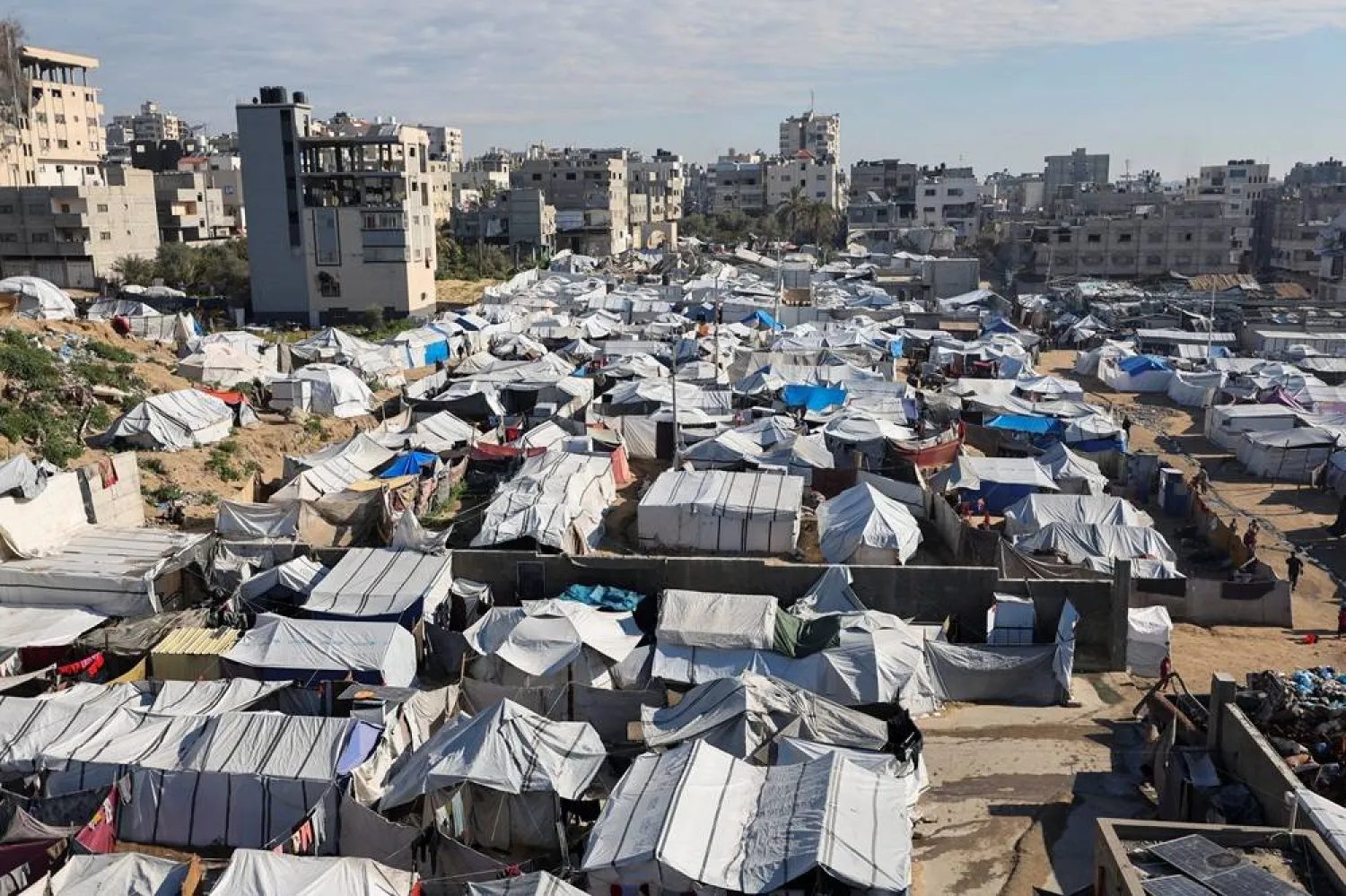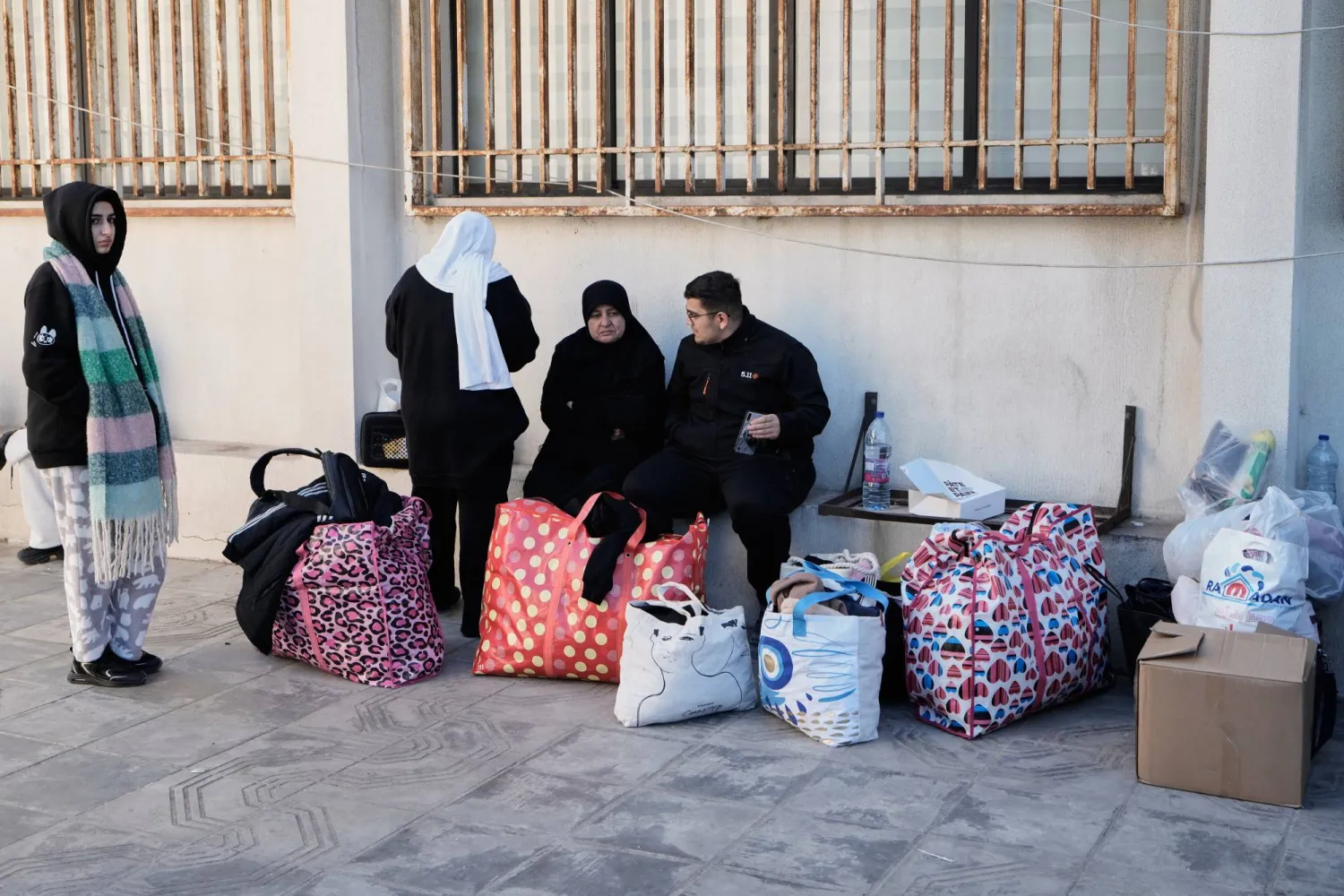Lebanese civilians fled from the country's south and Beirut’s southern suburbs on Monday, seeking refuge in schools in Lebanon's capital following a new and deadly escalation between Israel and the Iran-allied Lebanese militant group Hezbollah.
Lebanon’s Health Ministry reported at least 31 people were killed and 149 wounded in overnight strikes in the Beirut suburbs and southern Lebanon.
The Lebanese government later Monday slammed Hezbollah's decision to enter Iran's war with Israel and the United States, calling the militant group's actions illegal and demanding it hand over its weapons.
Highways were jammed overnight and into Monday with people fleeing after what was Israel's deadliest barrage on Lebanon in more than a year, striking hours after Hezbollah fired missiles across the border for the first time in more than a year.
Ali Hamdan was stuck in gridlock on the road between his village in southern Lebanon, Deir al-Zahrani, and the port city of Sidon. What should have been a half-hour’s drive had taken seven hours, he said.
“I don’t know how long it will take us to reach Beirut," he said. "I’m headed toward Beirut, but I don’t know where yet. We don’t have a place to stay.”
At a public school in Beirut, hastily converted into a temporary shelter, families arrived carrying mattresses, plastic bags, and bundles of clothing. Other families sat on sidewalks beside their belongings, some men smoking as they waited for space to open inside.
Volunteers moved through the crowd, registering names as families filled classrooms and gathered in the school courtyard.
Hussein Abu Ali, who fled a southern Beirut suburb with his wife and children, described the moment the strikes hit.
“My son began shaking and crying," he said. "Where are you supposed to go? I stepped outside, then back in because I was afraid of shooting in the air. I gathered my children and went down to the street.”
Nadia Al‑Salman, displaced from the southern town of Majdal Zoun, said they left their homes "not out of fear or terror of the United States, but to fulfill our religious and legal duty to protect ourselves.”
During the latest Israel-Hezbollah war in 2024, at one point, more than a million people were displaced in Lebanon. Many have been unable to return to their homes in the south, where villages along the border remain in ruins.
Hezbollah launched rockets into Israel a day after the militant Palestinian group Hamas attacked southern Israel on Oct. 7, 2023, triggering the war in Gaza. After months of low-level fighting, the conflict escalated into a full-scale war in September 2024 before a US brokered ceasefire nominally halted the fighting two months later.
Since that ceasefire, Israel has continued to launch near-daily strikes in Lebanon, saying it aims to stop Hezbollah from rebuilding.
Monday’s escalation also marked the first time in more than a year that Hezbollah has claimed responsibility for firing into Israel. Hezbollah said in a statement that the strikes were carried out in retaliation for the killing of Iran’s Supreme Leader Ali Khamenei, and for “repeated Israeli aggressions,” describing it as “a legitimate defensive response."
But Lebanon’s government said it considers Hezbollah’s military activities illegal and that the group should hand over its weapons. Prime Minister Nawaf Salam said after an emergency Cabinet meeting Monday that only the state should decide on matters of war and peace.
He added that Hezbollah’s military activities were banned going forward and called on security agencies to prevent the firing of missiles or drones from Lebanon and detain those behind the launch. It was the harshest stance the Lebanese government has taken yet toward Hezbollah, which also has a political party with a parliamentary bloc in addition to its armed militants.
Salam also called on the international community to work on getting a “clear and final commitment” from Israel to stop its strikes on Lebanon.
The Israeli military overnight issued a warning for residents of around 50 communities across southern and eastern Lebanon to evacuate. Military spokesman Brig. Gen. Effie Defrin said Israel is keeping “all options on the table,” including a potential ground invasion of Lebanon and threatened that “Hezbollah will pay a very heavy price."
He said Israel has called up more than 100,000 reservists since the war with Iran began on Saturday.
Hezbollah later condemned the government's decision to ban its military activities, while Israel carried out retaliatory strikes in response to rockets fired by the Iran-backed group.
In a statement, Mohammed Raad, the head of the group's parliamentary bloc, condemned Beirut's "swaggering decisions", saying that "the Lebanese were expecting a decision rejecting the (Israeli) aggression".









